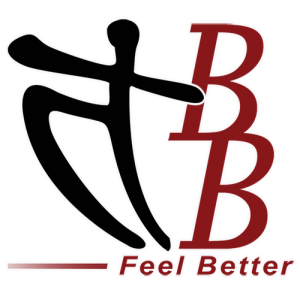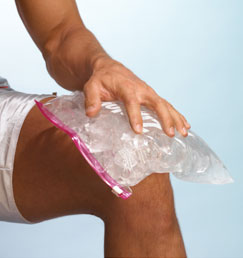Taming Your Tension
Muscle tension is like a car that’s idling too fast. The car is revved up and working hard but nothing useful is happening. There’s more wear and tear on the motor. Not only that, but the motor is burning more fuel and creating more pollution.
With muscle tension your muscles are working hard, but are not doing anything that’s useful. The tension doesn’t help you move and it certainly doesn’t make your muscles stronger. It doesn’t really accomplish anything at all.
It does, however, cause a lot of wear and tear on your body. It strains the tendons that hold your muscles to your bones. It pulls the joints tighter together which not only causes horrible grinding and crunching sounds, but also causes the cartilage in your joints to wear out. The tension limits your movement, interferes with your co-ordination and may make you more accident-prone.
The tense muscles burn up the fuel in your muscles, making you feel tired. They also create the equivalent of car exhaust – toxic waste products (called metabolites) that fatigue your muscles and make them feel sore and achy.
You know from experience – tension is not good.
It’s important that you get your tension under control. Not only will you feel more comfortable, but you’ll also prevent a lot of problems from occurring, from kinks in your neck to early arthritis. To manage your tension, it helps to know what causes it.
The culprits
Stress is one of the major sources of muscle tension. When under stress, you become like a turtle trying to pull its head into its shell. Your shoulders round forward and lift up as your head pulls back. If your stress level is high, you may actually notice your shoulders around your ears. More often than not, the stress isn’t quite so significant and the shoulder muscles simply tighten up.
Just sitting or staying still for periods of time will also cause your muscles to tighten up. By remaining static, you are in a sense training your muscles to lock your back or neck in a certain posture. When you begin to move, your muscles remain tense in an effort to maintain your position. It takes some time for the muscles to realize that they can let go and relax. The longer you sit without moving, the more you train your muscles to lock into position and the longer it takes to release them.
In looking at the way that tension is created, you can see that the areas that are most vulnerable to tension are your neck, shoulders and back. Although tension can develop in any muscle in your body, these are the areas that are most commonly affected.
Tenderness and tension
How do you know if your muscles are tense? One of the best indicators is tenderness in your muscles. Tenderness is the discomfort you feel when you press on the muscles.
When your muscles are healthy and relaxed, they won’t be tender. You won’t feel any discomfort even if your massage therapist is applying lots of pressure.
Blood vessels normally deliver oxygen and nutrients to a muscle and flush away waste products. When your muscles are tense, they essentially squeeze their own blood vessels. The muscles are working hard and creating lots of waste that doesn‘t get washed out of the muscle. As these metabolites begin to accumulate, they start to irritate pain nerves. If the tension is significant, you’ll actually start to feel achy. If the tension is less severe, the nerves become sensitive and any added stimulus, like a squeeze to the muscle causes discomfort.
Massage to the rescue
Massage plays an important role in helping you deal with your tension. Your massage therapist, like a mechanic, can adjust how fast your “muscle motors” are idling.
Massage has a twofold action. First, it helps induce a relaxation response in your body. This reduces the common defensive reactions in your body, including that turtle-in-the-shell action of your neck muscles. Relaxation causes your brain and nervous system to slow down and this in turn lowers the tension level of all the muscles in your body.
Secondly, with massage your muscles are pulled and stretched. This physically releases the muscle. In addition, the sensations that your muscles feel, both conscious and subconscious, give your brain information about the level of tension that exists in your muscles. This helps your nervous system to adjust your muscles to a normal level of tone.
The wonderful thing about massage is that its effect on tension is almost instantaneous. You feel the tension leaving your body immediately. You don’t have to wait days or weeks to see results.
However, don’t expect long-lasting results from just one massage. Although this may happen, factors like stress and a sedentary lifestyle are likely to perpetuate your tension. For this reason regular massage is important.
Typically, when you start to get massage, you may experience a great deal of discomfort and your therapist may have to work rather lightly. As your muscles relax and your circulation becomes more normal, the tenderness starts to decrease. Subsequent massages are usually much more comfortable. You may find that you have to ask your therapist to work deeper to get the same level of sensation.
If you find that your muscles are always tender when you visit your massage therapist, it’s time to consider getting more frequent treatments and taking a more active approach to managing your tension.
Regular massage treatments will not only reduce your tension, but they will train your muscles to maintain a lower level of tension or to recover from tension more quickly.
Once your muscles learn what it’s like to be relaxed, you can reduce the frequency of your massage treatments. At that point, you can use massage more as a maintenance tool and schedule treatments for the year, just as you schedule regular tune-ups for your car.
How often do you need a tune up? As a general rule, we suggest monthly maintenance treatments. However, there are many factors that determine your need for massage. Since your massage therapist knows you and your body, it’s best to ask for specific recommendations.
Ready to #feelbetter?
You're just a click away from a wicked good massage!
-

60 Minute Massage Gift Card
$170.00 Add to cart -

90 Minute Massage Gift Card
$255.00 Add to cart -
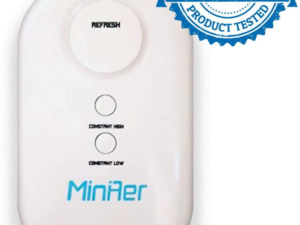
Mini Aer Small Room Air Purifier
$149.00 Add to cart -
Sale!
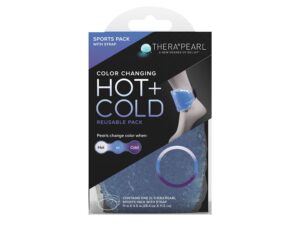
Thera-Pearl Sports Pack/Hot Cold
Original price was: $14.99.$12.99Current price is: $12.99. Add to cart -

3 Somadome Sessions Gift Card
$135.00 Add to cart -

20 Minute Somadome Gift Card
$45.00 Add to cart -
Sale!
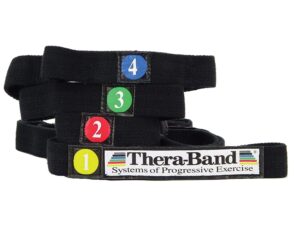
TheraBand® Stretch Strap
Original price was: $19.99.$14.99Current price is: $14.99. Add to cart -

TheraBand CLX Connective Loop
$14.99 Select options
May Flowers-Life Hack
April Showers Bring 5 Flower Hacks What do you get when you combine soda, vodka, apple cider vinegar, hair spray & bleach? Some incredible ways to preserve your flowers this season. Sure, April showers bring May flowers, but mother nature went a tad over board with it this April. So how well are you prepared…
Read More#FeelBetterBoston Recap
#FeelBetterBoston Recap The inaugural #FeelBetterBoston Massage & Community Wellness event over Marathon weekend left people with a smile on their face and genuine appreciation for all that was provided. We knew this being the first time we held such an event that we would be competing with the likes of the infamous BAA Expo and other…
Read MoreHow Do You Roll??
How Do You Roll?? Are Foam Rolling Advocates Stretching the Truth? Foam rolling is one of the most common means of self-care for so many people. It has been thought to provide many benefits such as enhanced performance, improved flexibility and speed, pain reduction and muscle recovery. Often it is referred to as a self-massage technique,…
Read MoreOn the Mend
On the Mend As we quickly approach the holy grail of running events, the Boston Marathon, we start to see a rise in our battered and beaten road warriors. Overuse conditions from months of increased training, acute injuries from falls on slippery roads and chronic aches and pains, all result in the patient surrendering to…
Read MoreLife Hack: Watch the SB LIII on TV, but LISTEN on the Radio
Life Hack: Watch the SB LIII on TV, but LISTEN on the Radio So, our beloved Pats are back in the big game again. I’m not going to relay stats and numbers that drive home the dynasty known as the New England Patriots. We are all aware of them. However, if you want to enjoy…
Read MoreCortisone Injections: Yay or Ney?
Cortisone Injections: Yay or Ney? As massage therapists, we often see patients who have been struggling to find an answer for a particular pain problem. Some of these cases are acute (sudden onset) where others may be chronic (reoccurring over a long period of time). It is not uncommon to have a patient ask us…
Read MoreChiropractic Care at The Boston Bodyworker
Chiropractic Care at The Boston Bodyworker We are excited to announce the arrival of Dr. Jean Kelly of Momentum Healthcare to our office. Dr. Kelly has been practicing in our building for the past 10 years and has been a friend to The Boston Bodyworker for almost 20 years. We are honored to have her…
Read MoreSpine Health: Don’t Ignore It!
Spine Health: Don’t Ignore It! The new year always provides us with the feeling of having a clean slate. Let’s face it, most of us don’t take very good care of our spines. 2019 can be the year that your resolutions come true. This lack of care can lead to physical discomfort and make us…
Read MoreLife Hack: Drink Tea
Life Hack: Drink Tea With the rainiest and most dreary Fall in recent time behind us and winter now in full swing, the need for us to provide optimal care for ourselves is high. Despite American’s love affair with coffee, tea is really the more versatile of the beverages. Most of us reach for a…
Read MoreLife Hack: Forward Head Posture
Life Hack: Forward Head Posture How many times in the course of a day do you roll your shoulders and neck around to alleviate “the spot” in between your shoulder blades. There are several reasons for the discomfort you are experiencing, but one way to resolve this is to do what is known as a…
Read More

